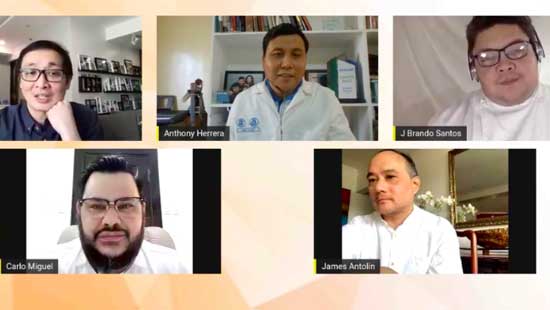Four Key Takeaways from the World Food Expo University Webinar
The discussion was insightful and grounded – and we were fortunate to have several industry leaders serve as panel experts: Brando Santos, Sous Chef from Unilever Food Solutions, Carlo Miguel, Vice President LTB Philippines Chef Association and Executive Chef Food Global Concept, and James Antolin from Ikomai and Tochi desserts. The panel was moderated by Joel Pascual from Peptarsus Corp.

I recently joined as a panel speaker for a webinar presented by WOFEX University to discuss restaurant and foodservice challenges during the current pandemic and action steps to help cope with the impacts the industry is experiencing.
During this difficult time, Ecolab is doing its part to help these hard-hit businesses operate safely. Ecolab’s Institutional division provides restaurant and foodservice customers with the food safety and public health knowledge they need to confidently reopen and serve the public in a safe manner going forward.
The discussion was insightful and grounded – and we were fortunate to have several industry leaders serve as panel experts: Brando Santos, Sous Chef from Unilever Food Solutions, Carlo Miguel, Vice President LTB Philippines Chef Association and Executive Chef Food Global Concept, and James Antolin from Ikomai and Tochi desserts. The panel was moderated by Joel Pascual from Peptarsus Corp.
Here are my four key takeaways from our discussion:
1. Mindset will play a critical role in how the industry will cope a) Have empathy and protect employees b) Be creative to survive during this challenging period c) The can-do attitude of owners and industries will build synergies and successes.
2. A hospitality and restaurant industry “playbook” for the new normal is needed focusing on cleanliness and social distancing.
a. The Philippine House Bill No. 6623 or the New Normal for the Workplace and Public Spaces Act of 2020 is in the congress, though it is not a law currently; it will impact the way businesses are operated in the Philippines.
b. Standards of Hygiene and social distancing will never be the same again. There will be: 1. Enhanced cleaning procedures , 2. A need for expanded off-premise menu, packaging, and services across delivery, takeout, and pick-up , 3. Implications of consumer demand for “no-touch” (i.e., removal of self-serve kiosks, adding white-gloved service, etc.)
c. Education about Hygiene in Culinary school and universities should be on the agenda.
3. Regaining trust from the public and customers will be critical a) Guests want to see and know the area is clean b) Operations that are safe and clean will help to build trust c) Working with experts and having a data/science-driven approach will be crucial
4. Best practices for heightened cleaning and disinfecting will be the center of the new normal in hospitality and restaurants
a. According to US EPA, many existing disinfectants are sufficient to disinfect surfaces, and these products are listed in US EPA- List N. It’s critical to ensure that the industry uses the right solution with EPA approval, with the right usage procedures and contact time as dictated on the product label.
b. Businesses should prioritize Infection prevention programs
c. Reopening checklist and staff training need to be focused on the standards of cleaning and hygiene
I am proud of the work we are doing at Ecolab to help our restaurant, hotel and foodservice customers protect their employees and customers during this challenging time. We are working to share best practices and enhance standard operating procedures. Talk to our team if you need help. I am also sharing our resuming operations checklist and infection prevention guidelines.
And of course, a big shout out and thanks to the WOFEX University for organizing a helpful and insightful webinar.



